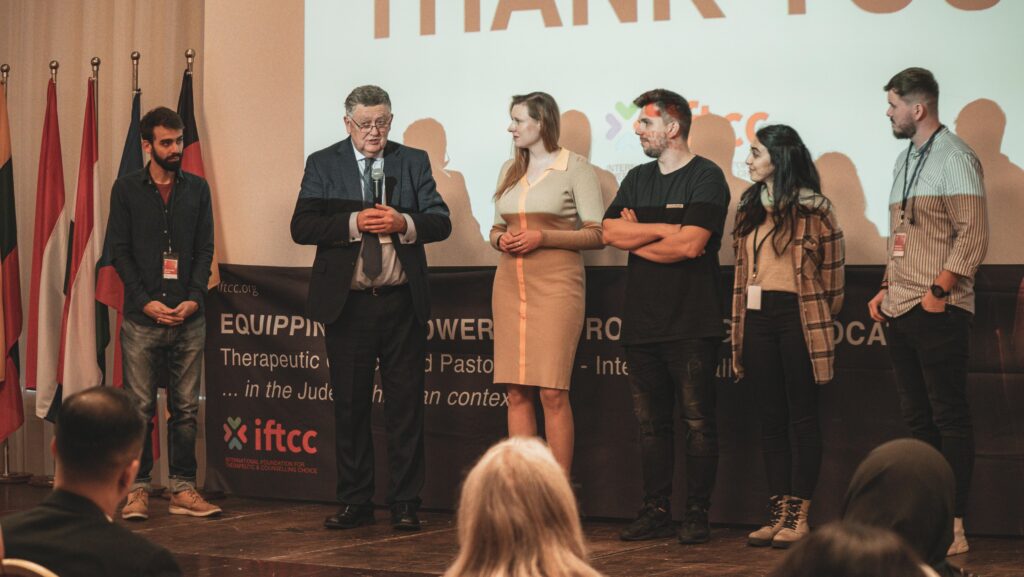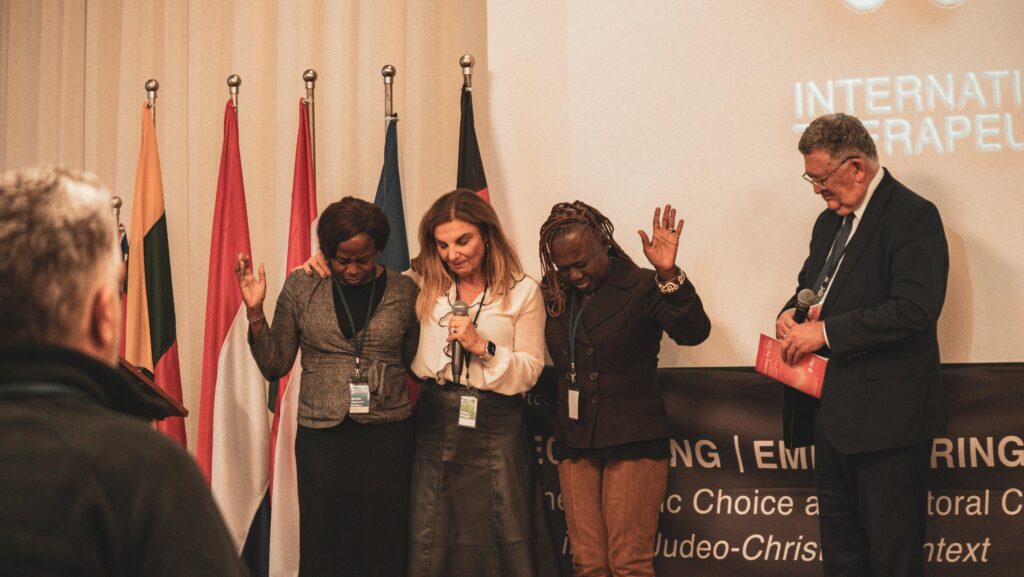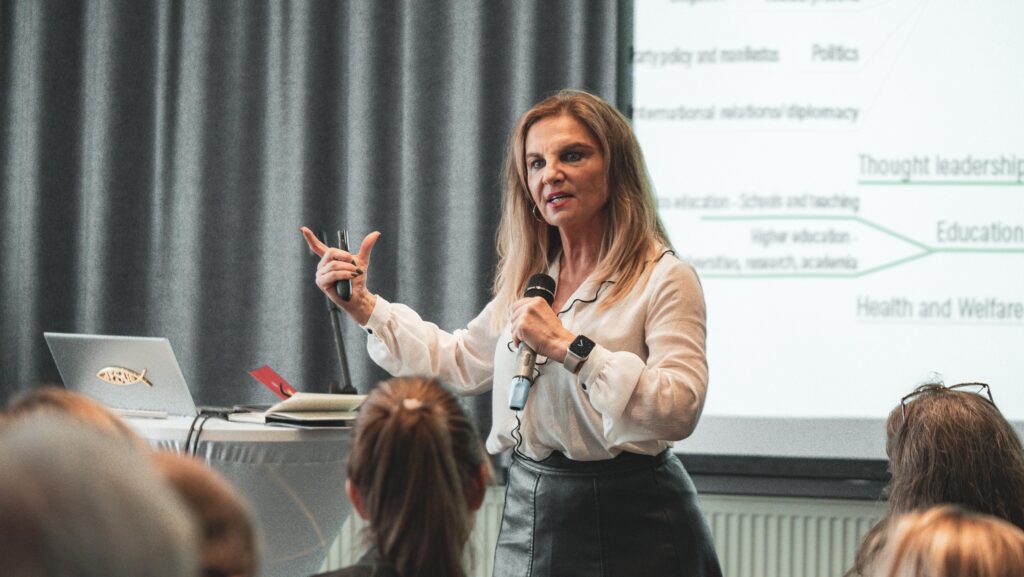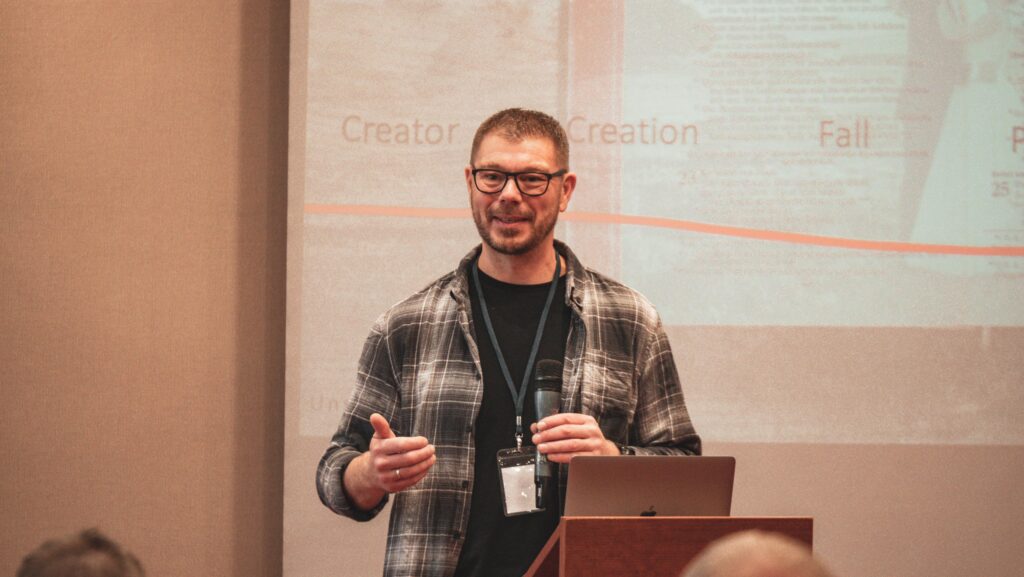Dr Mike Davidson, Chairman of the International Foundation for Therapeutic and Counselling Choice (IFTCC) reports on its annual conference, explaining how both professionals and laypeople can benefit from training to help those struggling with sexuality and gender

The 9th annual conference of the International Foundation for Therapeutic and Counselling Choice (IFTCC) in Eastern Poland took place from 27-29 October.
Around 220 attendees from 34 nations attended the event, held at a convenient location close to rail and air links. Survey results indicate that the professionals and laypeople who attended were highly satisfied by the event’s content and organisation.
Turning the Tide
The IFTCC is a multi-disciplinary organisation supporting three broad disciplinary streams: Clinicians, Pastoral Care Workers and Alternative Helping Disciplines Roles, which includes educators, lawyers, social workers and allied professions.
The theme of the conference was “‘Turning the Tide’: Cross Disciplinary Approaches to Sexuality and Gender”.
One of the ‘tides’ in need of turning is the notion that the IFTCC is only relevant for professional counsellors. Although the current strategic goals of the organisation include the ongoing development of a Professional Register for both Clinicians and Pastoral Care Workers, we do well to bear in mind that supporting those leaving LGBT behaviours needs ordinary, loving, caring mature men and women, from every age group.
Many who struggle with sexuality and gender have experienced wounds inflicted by bullying, for example. Healthy communities, like churches, are therefore the places where most healing is to be found. The IFTCC is for everyone – scientist, pastor and lay carer. Tide-turning requires inter-disciplinarity at every level of society.

A training agenda
The annual conference is part of IFTCC’s vision to provide continuing personal development to those supporting people who want to leave unwanted same-sex attractions and gender incongruity behind.
This includes qualified therapists and pastoral workers, but the event is also accessible to other professionals and laypersons with an interest in defending the rights and freedoms of individuals to determine their own pathways and choices in leaving LGBTQ+ behaviours and feelings, or who just want to care for the hurt.
This year’s conference programme brought a unique balance of research-led practice and scholarly presentations for the clinicians and practitioners, without neglecting pastoral work.
For those interested in science, practising paediatric endocrinologist Dr med. Quintin Van Meter explored the origins of transgender ideology with reference to Johns Hopkins University. He was in residency at the hospital when John Money undertook the notorious botched circumcision case which became the prelude to ill-fated transgender medicine.
Glenn Stanton (Global Director of Family Formation Studies at Focus on the Family) looked at how ‘trans’ reality is dramatically shifting after veteran psychologist Dr Laura Haynes examined researchers and leading clinicians on gender dysphoria psychotherapy.
All three of these presentations underscored the importance of the IFTCC’s Principles of Transgender Treatments. The emphasis on transgender laid the foundation to what gradually became more evident as the event progressed: our current gender and sexuality debates are part of a strategic move towards transhumanism.
The next conference will clearly need to examine the shift from human rights to transhuman rights currently underway in Western Cultures.
Research and scholarship: the foundation for activism
For those valuing scholarship, Phi Beta Kappa Graduate clinical psychologist and researcher and writer, Dr Christopher Rosik, opened proceedings on Saturday 28th by showing how the science on change efforts remains unsettled, providing reasons why the current narrative is simply wrong.
Bryan Shen, one of several Singaporeans at the conference, focused on the plight of those with deeply-hidden conflict about their sexual feelings – how this population is marginalised by the Church which is often ill-equipped to support them.
Professor Paul Sullins provided yet another major insight relevant to UK readers particularly, in his focus on non-heterosexual heterosexuals in Britain: the experimenters, closeted (MSMs) and desistors. Assisted by Spanish academic Dr Maria Calatrava, Professor Sullins here crucially examined the UK government’s NATSAL[i]. This is a wealth of information about just how ‘grey’ the area is and why change is not only clearly demonstrable in the UK demographic but ‘orientation’ as a fixed, innate and immutable entity simply isn’t reflected in the reality of our own national statistics on sexual lifestyle and attitudes.
This combined with research assistant Dr Amy Hamilton’s input on Minority Stress Theory versus natural law, brought into relief the fact that there is all to play for in protecting the spaces of those leaving LGBTQ+ living.
Professor Sullins also clarified the current debate around the myth that sexual orientation change efforts (SOCE) increase suicidality, while a Barrister from down under, Christopher Brohier, Director of Policy and Research at the Australian Christian Lobby, a grassroots movement in excess of 200,000 persons, gave insight into the hand-to-hand combat taking place in his nation following the introduction of the draconian Victoria ‘conversion therapy’ ban. The presentation from Andrea Williams (Christian Concern) mirrored and complimented his report, making reference to the plight of deposed teacher and Church of England clergyman Bernard Randall who, for one orthodox sermon, was dismissed for gross misconduct.

Multiple and diverse theoretical counselling approaches
Evidence that therapeutic approaches are not variations on single ‘exotic’ and special approaches was borne out by a range of practitioners with as many varied therapeutic perspectives.
Professional Counsellor, Clinical Sexologist and Sex Addiction Therapist, Dr Floyd Godfrey, brought his extensive experience in the area of sexualised attachments as symptomatic of and the basis of homosexuality. Andrew Rodriguez, trauma specialist Dr Ann Gillies, and IFTCC vice chairman Professor Carolyn Pela, (who reintroduced Psychodrama to the event,) developed a broad base with multiple options for approaching same-sex attraction, using the historical, standard psychotherapeutic and counselling frameworks and paradigms.
Israeli Shlomo Zalman Jessel’s presentation – a founder of the Jerusalem Narrative Therapy Institute, will be available at IFTCC Learning. He was prevented from attending along with three others from Israel. All of these were hands on sessions, accessible to laypeople but also useful for professionals.
All of this not only contrasted but also challenged (and therefore enriched) the psychoanalytical and psychodynamic traditions. Best of all, the PowerPoint and very shortly the recorded video presentations will be available on IFTCC learning, IFTCC’s public education platform, free for all those who attended or for a cost for those who didn’t.
Prevention is better than cure
For the first time, the IFTCC event introduced the importance of ‘prevention’ as a strategic means of addressing the results of the sexual revolution. Counselling and psychotherapy are essentially remedial; prevention is proactive. Led by Dr Szymon Grzelak from the European Institute of Integrated Prevention, it is likely that prevention will need to be introduced as subtheme of a future event.
Renowned author and sociologist Gabrielle Kuby, although prevented by illness at the last minute, has made provision for her presentation to be available from iftcc.learning.org
Christian pastoral care contributions
Following the introduction of the IFTCC Pastoral Protocol earlier this year, we continued to ensure that Pastoral Care Workers were supported, offering additional training and insight.
Veteran Pastor Tryphena Law Pek Leng examined the complexities of operating in a non-Christian country. Motivational speaker and mentor Alexis Lundh from Norway and X-Out-Loud’s Victor Novitchi spoke movingly from lay perspectives on how brokenness takes hold and distorts realities; Alexis in the context of pornography and Victor as a co-worker working with those leaving LGBT behaviours and identities.
We were grateful too for the expanding team of X-Out-Louders who not only welcomed, did the running, and manned the book stalls, but who made us realise why we do the careful work of looking at the science and the best practice. It’s all to support this generation which has been dangerously misled. Pastor Simon Wyatt co-ordinated optional cross-denominational Christian devotionals and prayer times before the event and at the start of each morning. Sunday services were also held on Sunday morning.

New directions for IFTCC and the framework for learning and training
The IFTCC, as it now seeks charity status in England and Wales, is clearly moving towards identification as a Christian-based professional foundation for members invested in the Judeo-Christian worldview and understanding of sexuality, marriage, family and the human body.
Its leadership and membership are not naive to the dangers of New Age and humanistic infiltration of the psychotherapy and counselling domains, and even in pastoral counselling. The IFTCC Learning Framework now in place promotes training in three domains: Research and Scholarship, Clinical Practice and Pastoral Care – what we refer to as the Head, Hands and Heart pathways – around which the 37 programme presentations have been organised in the conference programme. As curricula as far back as 2014 are entered on IFTCC Learning, so too the learning pathways and awards will be defined. This training is open not only to qualified clinicians and practitioners, but to all those in related disciplines who take seriously the need to support those seeking to leave the ravages of the sexual revolution, and the sometimes uninformed churches that fail to discern the mental health anomalies that can lie beneath same-sex and gender confusions.
Please sign the declaration
The IFTCC will continue to strive to provide an alternative to the social marination of LGBTQ+ ascendancy in the mental health and Christian counselling arena.
In the UK it opposes the Memorandum of Understanding on Conversion Therapy (MoU) – the de facto ban by which the UK, in practice, is made one of the several states where therapeutic choice is denied – even to autonomous adults. This neo-Marxist document has surreptitiously imposed significant constraints on both UK Church and State.
The ten-point IFTCC Declaration on Conversion Therapy and Therapeutic Choice succinctly presents the case for realignment away from the MoU. Supporting (by signing) the Declaration declares opposition to the MoU and similar initiatives to end choice and impose LGBT-affirming therapies.
We are thankful to all those who attended (the UK was the fourth highest represented country) and presented at the 2023 annual conference. We look forward to returning to Poland in 2024.

[i] NATSAL: National Survey of Sexual Attitudes and Lifestyles.
Find out more about Core Issues TrustFind out more about Mike Davidson




